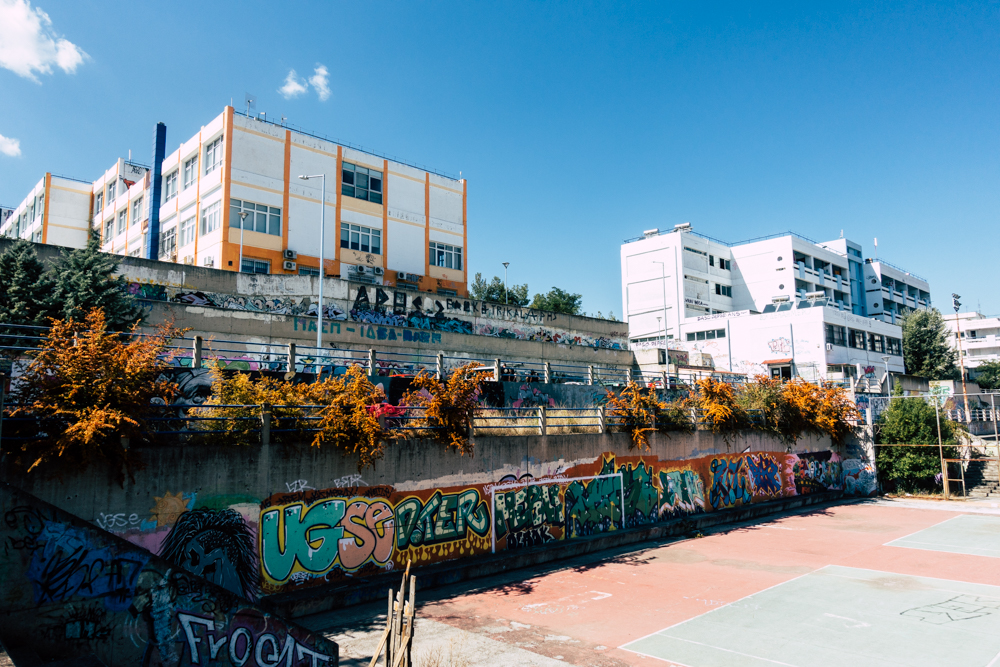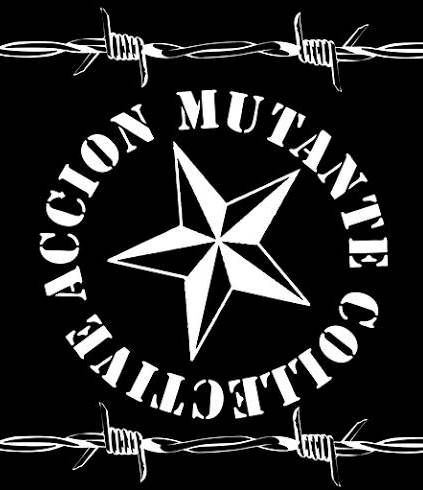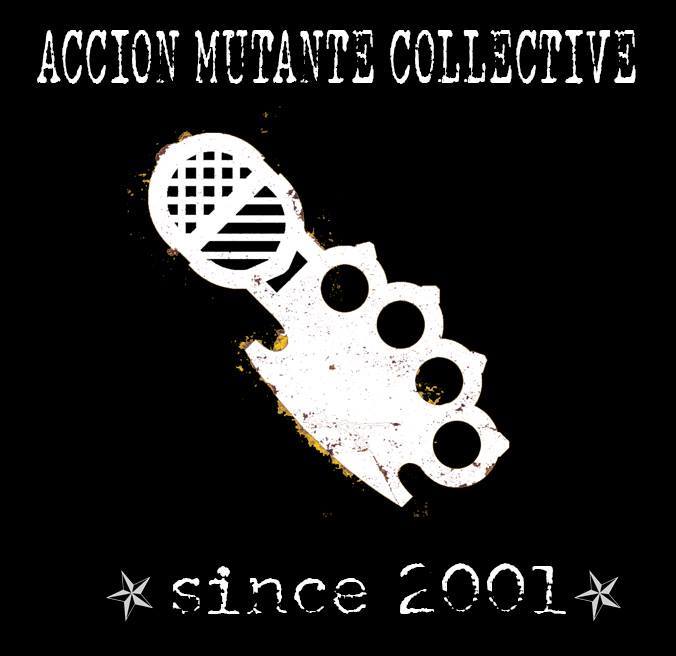Antifa kickboxing, punk, hip-hop, breakdance… The « Accion Mutante » association has created its own alternative ecosystem in Kevala, in the North-East Greek coast, by the Turkish border. This is where we met Géorgia and the two brothers Diamantis & Stelios. Together, we reviewed 20 years of activism, of passion, of resilience and conviction. | Interviewed by Polka.B (Trad: Julie B.)
What context brought you to the creation of Accion Mutante ?
Diamantis : It all comes back to the year 1999. At first, it was really about having fun. We were young, and we wanted, along with some friends from our neighbourhood, to organise a concert. The first one took place in the street. We borrowed a soundsystem from our university. It all seemed crazy back then. But despite some trouble, we managed to do it. It was real fun, because there were at lot of families in the skatepark that didn’t really get what was happening. It was the late 90s punk-rock, a movement which was way stronger back then. After some more concerts, we figured we wanted something more, we wanted to add our own way of thinking to it. We wanted something more DIY, more political, such as collecting money from the concerts to give to political prisoners, for instance. We started the year 2001 in that state of mind.
Did you always carry this double identity, both punk and hip-hop ?
Stelios : Hip-hop came way later…
D : Yes, we really started out via the punk-rock scene. Weirdly enough, this scene has always been kind of DIY in Greece. When you belong to the punk-rock scene, and decide to go more commercial, you get very poorly looked upon. And it’s still true today. I don’t know how it happened. I think that’s very specific to Greece, or maybe it happens in some other countries such as Chile or other Latin-American countries… It seems like everywhere else, punk music has lost its ethics. But the link with hip-hop seemed obvious to us. We’d always stood up for street music. We did so in the organisation of our festival.
S : In the beginning, all we wanted was to organise punk festivals. But then the underground hiphop scene started growing the same way the punk scene did. Very naturally. People would find beautiful places, and organise events on a very accessible and friendly basis. It started in Athens. But rapidly, that type of concert spread in all of Greece, in squats, in the streets… We started here in 2005. We can say that Kavala was the first small Greek city to develop a live hiphop scene based on the punk model.
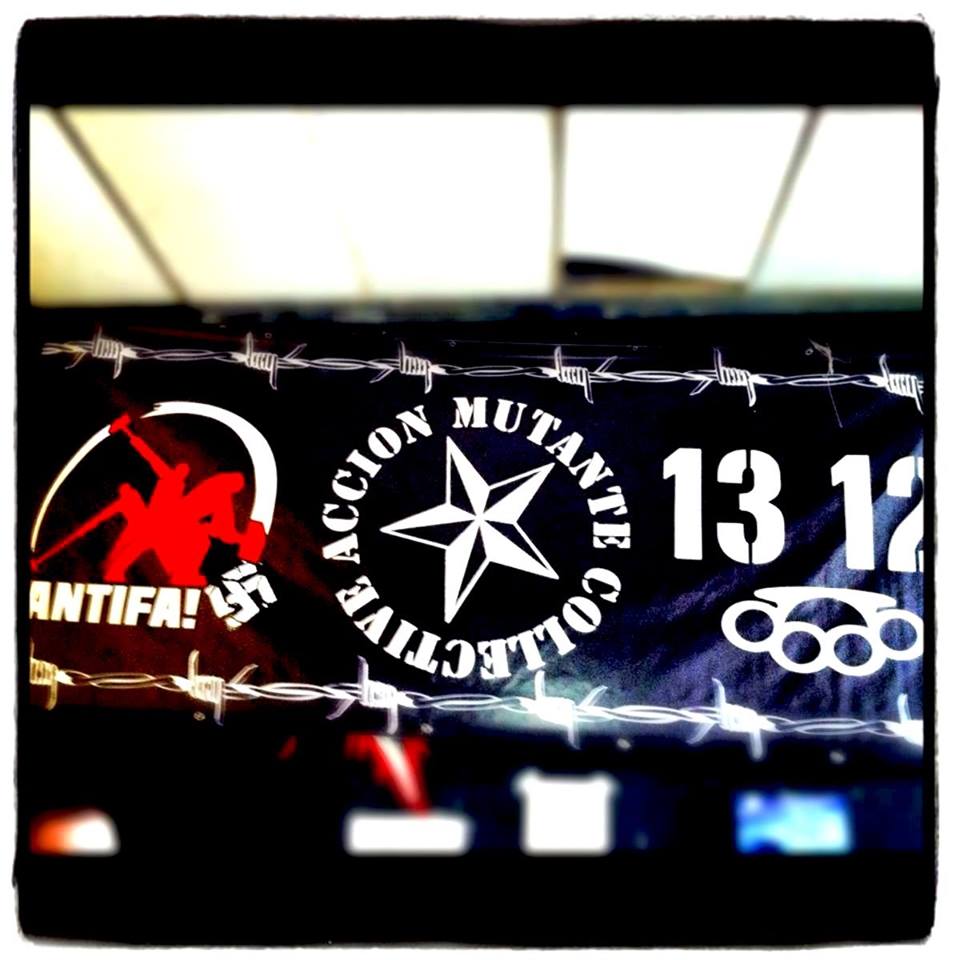
It seems like you have this great hip-hop tradition in Kavala. You also have a lot of ancientgraffiti, part of an underground culture that is highly respected by new generations. Why is the alternative culture so present in this city, despite it being sort of isolated ?
S : I don’t think that this is specific to Kavala. I think it’s a phenomenon that happens in most cities.
D : Here, lots of young people started contesting the ambiant conservatism very early. Graffiti, punk, skating… that was their thing. They wanted to get organised together to preserve this underground culture. In the late 90s, infoshops and politic squats started organising concerts on a regular basis, in Thessaloniki for example. The first German, Swedish and Swiss bands came to play in the North of Greece. They came to Xánthi and Komotini… We had to seize the opportunity and try to build our own network, to be able to welcome them. I remember a band of Americans from Portland that came to play here the first time. They were called « Tragedy ». They told us that they saw tragedy as a good motivation when it come to composing punk and hardcore songs. So we thought « why not do the same thing for hip-hop? ». Back then in Greece, everyone listened to hip-hop. But the hip-hop scene was not as structured and solid as the punk scene. This is basically why we created our festival, which forged Accion Mutante’s identity. Hiphop and punk have to start from the basis : no sponsoring, no paid entry, no security, and all of that in an antisexist mentality. That last point isn’t so easy to reach in the hip-hop world…
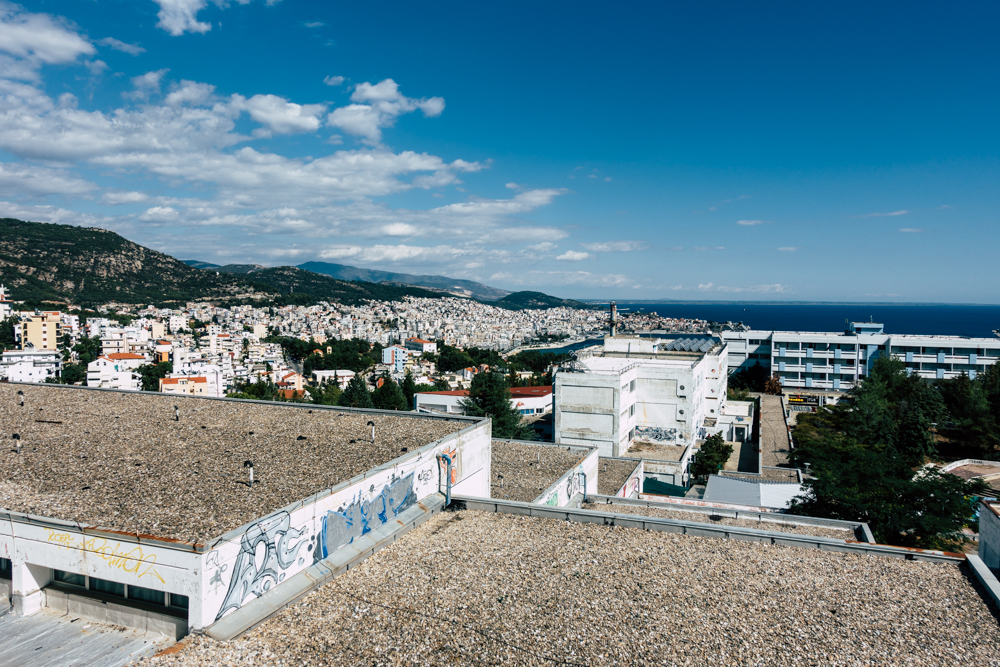
You’ve always been really politically involved. How do you make all of your cultural activities (such as hip-hop, breakdance, punk, boxing…) fit with your political engagement ?
Géorgia : Our basis is the political motivation. It’s what we are. We are antifascists, antisexists… All « anti » things, really (Laughs). We integrate our convictions in everything we do : concerts, projections, bowing lessons… everything !
S : Our opinions and engagement live through our daily routines, inside our collective and private spaces, through our boxing classes, or breakdance classes. The organisation of the training sessions, of life in the squat… I think we can learn autogestion this way. We sometimes talk about those young people, who don’t know that what they do is political. In order to learn, it’s important to start from the beginning. That’s why we insist a lot on the roots of the movement, on the « old-school », the return to the origins. We start in the streets, and try to figure things out together. The basis of it all really is friendship.
D : This is what we meant to do. We wanted to link graffiti, hip-hop music and breakdance with a punk DIY attitude, and a politic motivation. In Greece, everything is political. I don’t know how, or why. But it you action or your music isn’t politic, then you’re not actually part of the scene. So sometimes it’s a good thing, but it can lead to trouble. In a safe underground political environment, many groups are in conflict with each other. That’s a normal thing, they feel like they’re free to express their opinions. Anyway, what I get from all this is that the production of the underground musical scene is of real good quality in Greece. Some bands are really appreciated and followed, even when they clearly stay anti-commercial. We can talk about popular music. And that is something !
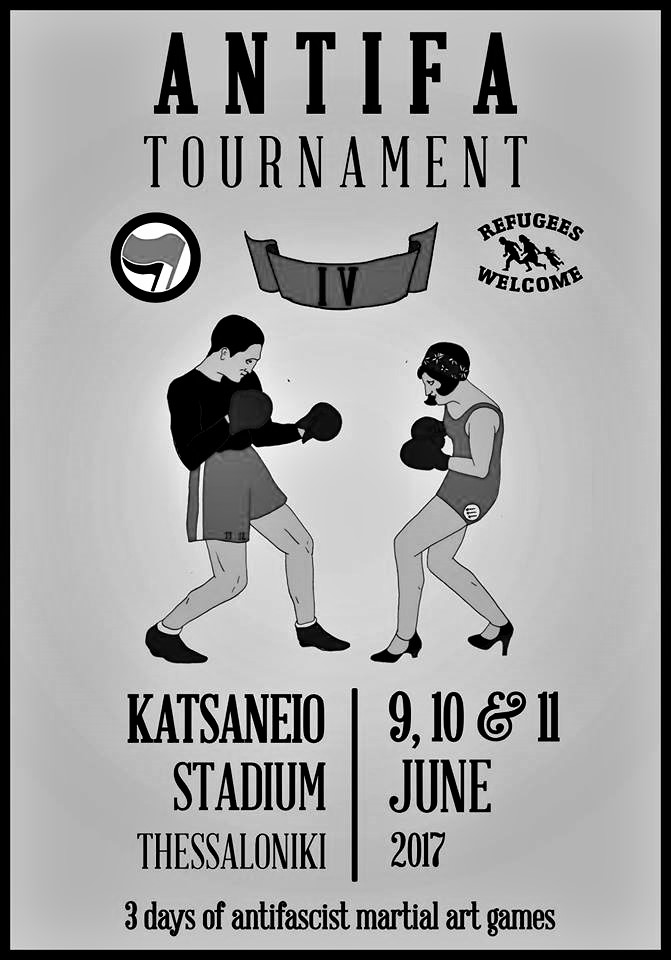
You association now has existed for 20 years. What motivates you today ?
D : The claiming of a certain way of life. We also have to fight against ourselves, because we grew up in traditionalist families. It’s actually really complicated to get organised politically with people who have ideas in common with us here, it’s hard to find people in the streets who are hardcore, with something different. We got that pretty fast. When you grow up in a traditionalist society, you have to make something of your own. Kavala is a particularly conservative city. There are no cultural opportunities. So we produce cultural stuff ourselves. We do screen projections, debates, concerts at the university, street breakdance shows… We also have friends that are refugees and help us form collective spaces for refugees. We also do Antifa-kickboxing. It’s important, because reactionary people absolutely don’t want them to meddle in social matters. Everything I do is linked to a certain way of life. It’s also a means of living, I want to do my share. Otherwise I’m just some hipster or something !
It seems like it really matters to you to integrate the younger generations to you activities. Has this worked yet ?
G : Hip-hop and breakdance have attracted many youngsters. So have the movies and the Antifa kickboxing, in a more indirect way. Some people just want to learn stuff, or simply watch a movie. And then, they come and ask questions. When you sit with them and talk like friends, and not like an all-knowing mother or father trying to teach them things, it’s really different. We try not to make them feel like we’re older. So they often come back. They want to participate, to learn self-management. And they do it with motivation !
Why did you chose to develop around fighting sports classes ?
D : There was already a great tradition of boxing and martial arts in Kavala. It was an open door for us to have access to places where we wouldn’t have been accepted automatically. We even started teaching classes in schools ! Sport is one of the most common things in a society. And boxing is a very open practice. So we started adding a bit of our way of thinking into it. As always : no sponsoring, no security. Boxing was not something we randomly chose to do, it was a necessity. And it’s not just about self defence. In the early 90s, Greece was facing a huge drug issue, and particularly in the punk spaces in Kavala. It also happened in Turkey. There, the government basically ignored the problem of heroin traffic, because it was addictive and made people inoffensive. We tried to react to that as we could, with our own means. Here, sport has kept a lot of people away from drugs. Breakdance has too. Stelios knows a lot of young people and families facing poverty, or migrant families who could easily fall for a dangerous way of life if they didn’t have anything else to turn to… This is something that the government and the State won’t provide. But we don’t want to stand in a position of « saviors ». We do that because we love it.
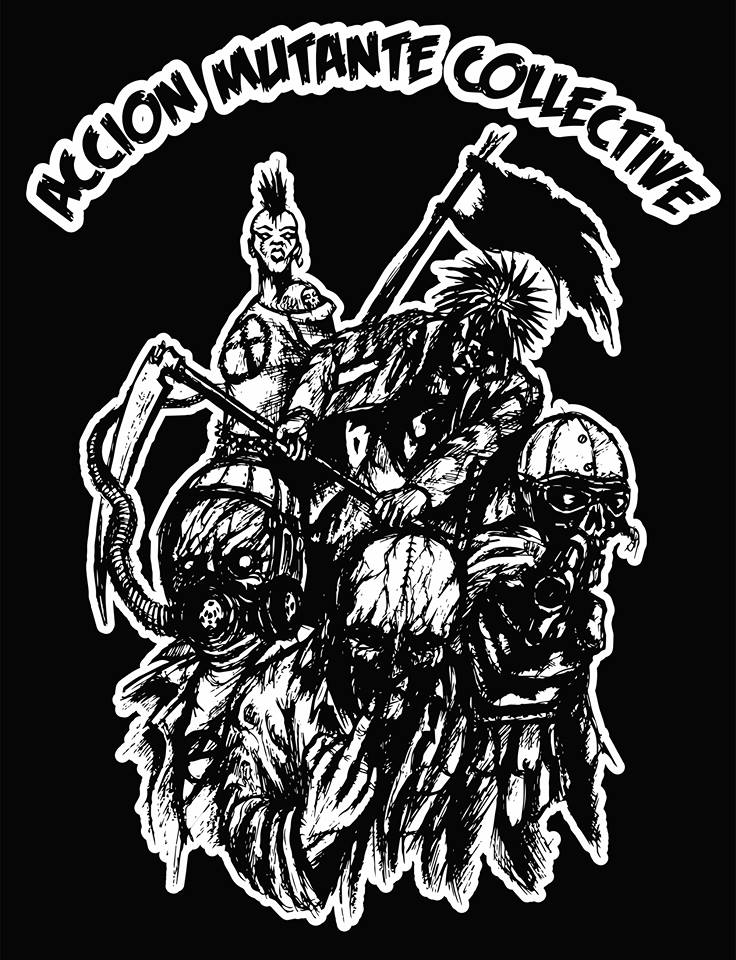
You always work with Turkish and Bulgarian associations when it comes to organising concerts. Are connexions between these countries’ alternative scenes expanding ?
D : We starting helping each other out, particularly with our Bulgarian friends. To be honest, these are still quite fragile connexions. Our daily lives are complicated. We’re very busy, and therefore it’s hard to travel and to exchange informations. In Abany, Bulgaria, and in Turkey, anarchists are particularly tracked. The situation is mad here in the Balkans. I think we can only forge and maintain our connexions by cooperating all together, to build something real. And it’s hard when nationalism still is very present.
What are your next projects ?
D : We haven’t told you about our actions for stray dogs yet ! There are many stray dogs in the streets of Greece, and a lot of people hate animals and spread poison everywhere. This is a big issue here. They killed an inordinate amount of cats and dogs, but when we took action, they started getting scared… Then there’s been our opposition against the energetic plans and the construction of factories in the North of Greece. After the economic breakdown, the State thought about turning our region into a huge generator for Europe. Roughly speaking, they imagined a whole half of Greece dedicated to tourism and housing for rich Europeans. The North of the country would become a big energetic battery for the occident. To us, it’s all related. It’s all political. Ecology, stray dogs, anarchism, anarchist prisoners, prisoners, refugees…All of it.
